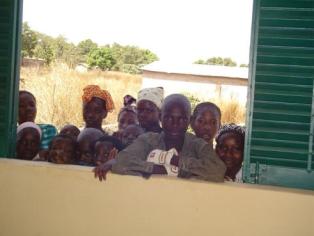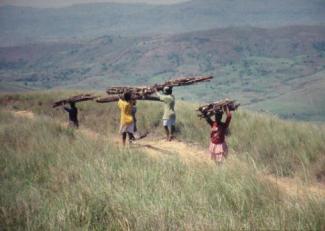South African Workshop Presentations
Two Visibility Workshops have been held on the 28 – 30 January 2010 and 2-4 March 2011 and a Partner & Training Workshop on the 15 – 22 March 2013.
2.1 Abstracts of South African Workshop (January 2010)
2.1.4 An Overview of the Policy and Regulatory Framework Pertaining to Biofuels in South Africa

Presenter:
Lindsey Smith
Imbewu
Broadly stated, the purpose of the presentation is to provide an overview of the current policy and regulatory legal framework in South Africa regarding biofuels. The presentation will focus on the legislative restrictions in South Africa regarding the commercial use of biofuels, specifically those generated from micro-algae, jatropha curcas, biogases and CHP engines, as alternate sources of energy. This will include an overview of the current energy policy and regulatory regime in South Africa, specifically focusing on the renewable energy legislative and policy developments, including a discussion of the current difficulties faced in South Africa by Independent Power Producers, with a specific focus on the biofuels industry.
However, biofuels cannot only be considered from an energy perspective. The impact of a biofuel industry, generally, on biodiversity, water resources & food security is also a relevant consideration. For the purposes of this presentation, an overview of the South African policy and legislative framework regarding biodiversity in relation to biofuels generally, will be provided.
- Energy
- Renewable energy policies in relation to biofuels;
- Biofuel Industrial Strategy.
- Biodiversity
- Biodiversity policy and regulatory regime in regard to biofuels: Alien & Invasive Species; and Threatened and Protected Ecosystems
- GMOs?
- Food Security & Biosafety
- Food Security and Biosafety policy and regulatory regime in regard to biofuels.
- Climate Change: South Africa’s policy response to climate change:
- Long Term Mitigation Scenarios Strategy and the role of biofuels
- Proposed Climate Change policy.
- Water
- Water availability & licensing requirements ito National Water Act 36 of 1998.
- Petroleum & Fuel industry
- Petroleum Products Act, Amendment Acts & Regulations (Manufacturing licence & requirements)
- Petroleum Pipeline Act
- Gas Act & Regulations for bulk gas transmission, storage, distribution, liquefaction and re-gasification
- SANS fuel standards applicable to biofuels.
- National Environmental Management: Air Quality Act 39 of 2004. Not only in relation to petroleum industry & motor vehicle emissions standards; may have implications for biogas projects and CHP engines, as NEM: AQA will replace the Atmospheric Pollution Prevention Act & these projects may require a licence.
- Governed by DE, formerly the DME.
- Several Renewable Energy Policies relevant to biofuels.
- White Paper on Energy Policy for the Republic of South Africa, 1998: Biomass listed as potential renewable energy source.
- White Paper on Renewable Energy, 2003:
- Policy target of 10 000 GWh of renewable energy contribution to final energy demand by 2013;
- Biomass and biofuels again highlighted as alternative energy sources having high potential to achieve target & suggests a fiscal incentive for production of biofuels produced from biomass in the form of a 30% reduction in the Fuel Levy.
- Renewable Energy Summit 2009: only 3% of target achieved!
- National Biofuels Industrial Strategy, 2007:
- Primary objective: create jobs in the energy‐crop and biofuels value chain in the former homelands, and to act as a bridge between the 1st and 2nd economies.
- To operate over a period of 5 years (i.e. pilot phase).
- Target: 2% penetration level in national liquid fuel supply by 2013.
- Specifies certain crops for production (1st generation): Bioethanol: sugar cane & sugar beet; Biodiesel: sunflower, canola & soya beans
- Strategy specifically excludes maize & jatropha on grounds of food security & environmental concerns, respectively, however Strategy provides that further research is required.
- Strategy envisages the use of 1.4% of the total arable land in SA, of which 14% located in the former homelands is under utilised.
- Does not support development of industry based on imported feedstocks.
- All biofuel producers require manufacturing licence ito PPAA.
- Feasibility study findings highlighted incl. the extent of the industry dependent on inter alia the extent government support, especially investment environment.
- Suggests R4 billion investments required over 5 years to reach 2% target.
- Strategy premised (& dependent) on various partnerships along value chain & across affected sectors, e.g. agricultural assistance programmes, contracts between producers and oil companies, and the creation of a market for biofuels.
- Only biofuels plants that have been identified to assist in achieving the initial target will be supported and their location will be a condition of the issuing of a manufacturing licence. The plants will be located throughout the country depending on the investor’s choices and also as per the conditions of licences.
- Recommends fuel levys for biodiesel & bioethanol (50% & 100% respectively).
- Highlights challenges regarding water availability & pollution.
- Does not favour enforcing / mandating uptake & blending in pilot phase.
- R&D into alternative feedstocks, development of energy crops, improvement of known technologies & developing, supporting & piloting second generation technologies is supported by the Strategy.
- Criticism? Focus of strategy & overly dependent on ability of emerging farmers to overcome difficulties; 1st generation tech only & food crops used as feedstock; no mandatory targets; binding nature?
- National Biofuels Task Team: Criteria for manufacturing biofuels
- Confirms that all biofuel manufacturers, including pilot projects, must obtain manufacturing licence in terms of the PPAA.
- Crops used for production of biofuels must not have negative environmental impacts on South Africa during processing and storage.
- The production of feedstock under irrigation will only be allowed in exceptional circumstances and a detailed motivation will have to be provided. Water that is currently used for gainful irrigation will not be considered for a new water license for biofuels production purposes.
- Feedstock must be cultivated and sourced from the designated areas (proof).
- All biofuel products and producers must meet the prescribed SANS specifications and standards.
- REFIT, Phase I &II (Electricity generating alternative fuel sources)
- Financial incentive to drive the uptake of renewable energy projects by IPPs to assist achieving RE target & beyond in a phased approach.
- All RE generators require a Generation Licence ito Electricity Regulation Act.
- Landfill gas (phase I), Solid biomass & biogas (phase II) included in tariff.

Biodiversity Policy & Regulatory Framework
- Biodiversity & conservation fall under the mandate of DEAT (now DWEA).
- Biodiversity issues governed by the National Environmental Management: Biodiversity Act 10 of 2004 (NEM:BDA).
- Framework act & Specific Environmental Management Act.
- Purpose of NEM:BDA inter alia manage and conserve biological diversity and the components of such biological diversity & the use of indigenous biological resources in a sustainable manner.
- Biodiversity legal regime under NEM:BDA is extensive.
- The following aspects of the regime are relevant to biofuels:
- National Biodiversity Framework (2009);
- Draft Alien & Invasive Species Regulations (2009);
- Draft List of Threatened Ecosystems (2009).
Water Regulatory Framework
- Water regime governed by the National Water Act, 1998.
- S21 lists the water use activities that will require a Water Use Licence, including the taking of water from a water source & using waste water or water containing waste for irrigation.
- However, SA’s water allocation is approximately 98%.
- Ecological reserve not maintained or supplied.
- Assurance of water supply is lower than acceptable.
- Biofuels manufacturing criteria rules out the issuing of water licence for irrigation for biofuel production.
- Availability of water and the likelihood of available water being used for the biofuel crops set out in the Biofuel Strategy is a major barrier.
Food Security Regulatory Framework
- Governed by DAFF.
- Also concerns “biosafety” i.e. GMOs.
- A word on GMOs:
- Legal regime well established through Genetically Modified Organisms Act, 1997 & regulations.
- To import, export, develop, produce, use, release or distribute GMOs, require permit.
- Risk assessment
- Registration of facility
- DAFF has an Integrated Food Security Strategy (2002), however no direct legal link to biofuels – there is of course a link between FS and biofuels.
- In the DAFF Strategic Plan & Budget briefing in 2009, it was stated that the department’s biofuel strategy is in the process of development & is not ready for implementation. Department also fast tracking the impact analysis of biofuels for strategy. Department looking at developing agricultural commodities that don’t compromise food security.
Climate Change Regulatory Framework
- Currently, no policies in place, however the Climate Change Response policy is anticipated to be released by the end of 2010.
- Most important document to be considered is the LTMS. The overall aim of the LTMS is to “contribute to setting the pathway for long-term climate policy for the country and to inform South Africa negotiating positions…(and)…deliberations towards a legislative package which will give effect to SA policy at a mandatory level”.
- Ito LTMS, renewable energy can play an extensive role in reducing SA’s emissions, including biofuels.
- Extent of RE and biofuels to combat climate change should be set out in the Climate Change Response policy.

Conclusion
Availability of land and water & their respective legal regimes are very important considerations. Generally speaking, the investment environment still needs to be created
- More subsidies for producers and for R&D;
- More standards for industry;
- More legal certainty.
Generally, it is unclear what will happen once the “pilot phase” of the Biofuels Strategy is over. Climate change policy will potentially provide great impetus for biofuel industry but will be require a more integrated and comprehensive approach than has currently been taken.
At the RE Summit of 2009, the following was provided relating to biofuels:
- “Regulations to govern the promotion and development of the biofuels industry including the sustainable feedstocks to be used by the country based on scientific outcomes and international best practice and experience, blending levels etc, must be finalized.
- Regulations for biofuels must provide for a medium term transitioning (i.e. A bridging strategy) from a fossil fuel based transport sector to a low carbon transport sector; and
- Biofuels regulations and guidelines must provide for the development of appropriate projects, taking into account the constraints of the macro-economic environment (water resources, land productivity, food security, job creation and sustainable livelihoods)”.